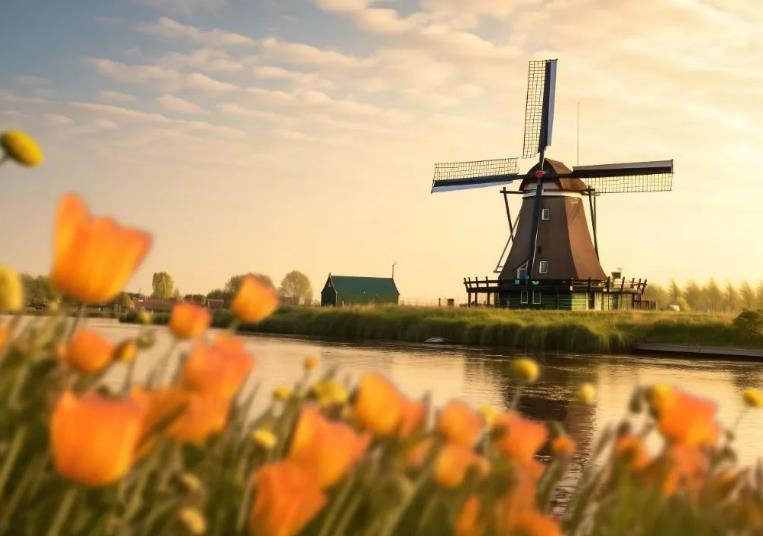https://bh.trip.com/moments/poi-yuyuan-garden-30496080
App
Customer Support
Find Bookings
1.8
4.6/5
58 รีวิว
Historic buildings
ที่อยู่:ของ Yuyuan Garden
No.42 Sibei Tongjin, Yuexiu District, Guangzhou
ระยะเวลาเข้าชมที่แนะนำ:ของ Yuyuan Garden
10-15 minutes
ราคาตั๋วของ Yuyuan Garden
เข้าชมฟรี
🐭 Let's go "look at cute things" along with cute photo spots!
1. 🧸 Start your day with a cute look at Disney Store Shanghai
📍 Disney Flagship Store – 789 Nanjing East Rd.
• The largest Disney store in China!
• There are zones for dolls, clothes, stationery, and super cute seasonal items.
• The front of the store has Mickey Tower and a fountain, a popular photo spot.
📸 Must-see spots:
• The front of the store with Mickey Tower
• Duffy & Friends, Toy Story doll zones
• Take a sneaky photo of the Stitch or Lotso shelves, it’s awesome.
🛍 Recommended: Items available first in China, such as Duffy cloth bags, seasonal teacups
⸻
2. 🏙 Take a close-up photo of the Pearl Tower
📍 Close-up photo spot: Lujiazui Riverside Promenade
• Cross the river to the Pudong side and walk to the riverside view balcony.
• This angle shows the Pearl Tower as “not blocked” by the building and is at eye level.
• Take photos in the afternoon-evening, the light will be beautiful and not too backlit.
📸 Recommended pose:
• Relax on the balcony railing Pearl Tower is in the back
• You can take portrait or wide shots
• Bring the props of Disney dolls/bags from this morning and it will match 😆
⸻
3. 🥐 Stop by to eat the popular “pork floss cream cake” 🐷☁️
📍 Recommended shops: BreadTalk / Holiland / Local dessert shops in Nanjing East / Lujiazui
• The cake looks like a soft lump sprinkled with lots of pork floss
• Inside is filled with salty, sweet, rich cream
• Take a bite and it’s so smooth! It has become a popular souvenir
📸 Photo tips:
• Take a bite of the cake / Hold the clear box
• Take a photo with the stone floor or a white-bright wood background
⸻
4. 🌆 End the evening at Yuyuan Garden + Old Street
📍 Huangpu District (near The Bund)
• Ancient Chinese Old Town Good atmosphere, beautiful evening light
• There are red lanterns / Chinese-style buildings / water bridges / carp ponds
• Souvenir shops + lots of old-fashioned rice noodles
📸 Recommended spots:
• Crescent Bridge + ancient wooden buildings
• Herbal tea shops, fan/mask shops
• Nighttime lanterns, very romantic atmosphere
🧠 Tips:
• Arrive at 5:00 PM to get beautiful light before it gets dark
• Prepare some light Chinese props such as silk umbrellas, paper fans
#ShanghaiCuteDay #SweetSideTravelsChina #DisneyIsAlsoHit
#ShanghaiPhotoSpots #Disneyflagshipstore #luijiazui #yuyuangarden
ทัวริสสปอทตี้
1
Shanghai 4-Day Self-Guided Travel Guide
🗺️ภาพรวมของจุดหมายปลายทาง
📍ข้อควรรู้ก่อนเดินทาง: โหลดแอพ Didi และ Alipay
👉Day 1:
🏖️สถานที่เที่ยวที่ห้ามพลาด: Miniso, Popmart, Yuyuan Garden
🏠ที่พัก
1. JI hotel
👉Day 2:
🏖️สถานที่เที่ยวที่ห้ามพลาด: Butterful&creamorous Cafe, 1000 trees, The bund
👉Day 3:
🏖️สถานที่เที่ยวที่ห้ามพลาด: Disneyland
👉Day 4:
🏖️สถานที่เที่ยวที่ห้ามพลาด: Xintiandi, Anfu rd., Jingan temple
_TI***hx
Yuyuan Garden
When you come to Shanghai, you must visit Yuyuan Garden. The lights here are very beautiful at night. This place is quite close to my hotel, it only takes 15 minutes by train, so I came here twice during this trip to Shanghai 🥰
Hà Huyền KR
🏮 Yuyuan Garden – A 400-year-old traditional Chinese garden
#ChinaTravelMoment
The most beautiful traditional garden in Shanghai, Yuyuan (Yuyuan)!
Established in 1559, this 5-acre garden was built in 1577 and features Ming Dynasty buildings, ponds, rock gardens, and arched bridges. 🏯 Walking along the giant dragon-shaped wall and stone bridge, you'll feel like you've traveled back in time to the Ming Dynasty!
-You can browse various souvenirs at the nearby shopping street
📍The entrance fee is around 40-50 yuan, and it opens at 9 am, so it's recommended to visit during a quiet time! Tip: Be sure to try the xiaolongbao at 'Nanxiang Dumpling (南翔馒头店)' near the entrance! 🥢
Crazy in travel
The most beautiful subway station in Shanghai
Metro Yuyuan Station
It is said that this is the most beautiful subway station in Shanghai, which opened in 2022.
The ceiling of this station is a curved wave, like a flowing river, similar to the Huangpu River that this train passes through. The ceiling also changes color with a 3D LED light system, very beautiful.
If you come to Shanghai, don't miss it.
#yuyuangarden #YuyuanStation #shanghai #yuyuan
sireethorn200

Recommended Themes

2025 Recommended Attractions in Yuyuan Garden (Updated July)
8 posts

2025 Recommended Thorough Guides in Yuyuan Garden (Updated July)
3 posts
Don't miss it when you come to Shanghai! Yuyuan Garden🌳
#tripTraveling to China Don't miss it in Shanghai! Yuyuan Garden🌳 Yuyuan Garden, an oasis in the heart of Shanghai, is over 400 years old.
Built by a wealthy man as a place for his father to relax. The entrance fee is 30 yuan per person.
The inside is very shady. There is a bridge and an ancient Chinese pavilion, making it look like you have been transported to the Ming Dynasty.
Afterwards, don't forget to continue walking around the market. There are plenty of foods to eat. The must-try menu item is Tangbao (Xiaolongbao). Inside is crab soup. There are straws to suck the soup. Plus, the surrounding area is a shopping area with shops decorated in the style of Chinese pavilions. There is H&M and Starbucks✨
📌Yuyuan Garden🚈Take the subway to Yuyuan Garden Station (Line 10) and use Exit 1. When you get off the station, walk for another 5 minutes to arrive.
#Beautiful places to visit in China #Shanghai #Shanghai2024 #YuyuanGarden #yuyuangarden #beautiful places to take pictures #100 ways to travel #beautiful places to take pictures #get a discount without relying on luck #trip
ตามใจแฟน
How to get to Yuyuan garden
Take the Metro and get off at Yuyuan Garden Station, Exit 1. You will walk through the park. If you want to buy a ticket from Trip, the price is around 192 baht. You will get a QR code to scan at the entrance. Or if you want to buy it at the entrance, you can do so but you will have to wait in line. #Shanghai2024 #yuyuangarden
jingjoe
Yuyuan Garden, Shanghai, China
I went to Yuyuan Garden on 25 September 2024 which was my last day in Shanghai, China. The garden is so beautiful and amazing that I spent almost 1 hour there discovering the beauty of the Chinese Cultural & Architectural beauty. The entry fee to the garden was 40 RMB and the printed ticket was scanned before entering the garden. There are some halls were different chairs, tables and some other furniture were kept. These were very old and historical items. There was also some water reservoirs which were stunningly beautiful to look at. The trees were also very much eye- soothing. There was a dragon sculpture inside which tail was too long.
There are also different markets for different products around Yuyuan Garden. I bought Chinese Tea and some other items for my family from those markets.
Hope to visit again in future.
Shah Mohammed Imtiaz
1
Night in Yuyuan Garden - Shanghai
Yuyuan Garden is an extensive Chinese garden located beside the City God Temple in the northeast of the Old City of Shanghai at Huangpu District, Shanghai.
It abuts the Yuyuan Tourist Mart, the Huxinting Teahouse and the Yu Garden Bazaar.
This garden is accessible from the Shanghai Metro's Line 10 and Line 14 Yuyuan Garden station.
#yuyuangarden #Shanghai ##Weekendholiday
A centerpiece is the Exquisite Jade Rock a porous 3.3-m, 5-ton boulder. Rumours about its origin include the story that it was meant for the Huizong Emperor (Northern Song Dynasty from 1100 to 1126 AD) the imperial garden in Bianjing, but was salvaged from the Huangpu River after the boat carrying it had sunk.
QuynhLam
Shanghai Yuyuan
Yu Garden, or Yuyuan Garden, is a renowned classical Chinese garden located in the heart of Shanghai's old city. Established in 1559 during the Ming Dynasty by Pan Yunduan, a government official, the garden was intended as a tranquil retreat for his elderly father. Spanning roughly five acres, Yu Garden exemplifies traditional Chinese garden design, blending art, architecture, and natural elements in a harmonious and serene setting.
The garden's layout is intricately designed, with scenic areas separated by "dragon walls"—curved walls topped with dragon figures that create a sense of seclusion and mystery. Pathways meander through lush landscapes, leading visitors past koi-filled ponds, ornate rockeries, and elegant pavilions, each offering picturesque views and reflecting traditional Chinese aesthetics. Notable features include the Grand Rockery, a striking artificial mountain standing 14 meters high, and the exquisite Jade Rock, a porous, 3.3-meter-high rock said to be one of the finest examples of its kind.
Pavilions like the Sansui Hall and the Wanhua Chamber showcase classical Chinese architecture with their upturned eaves and intricate woodwork, serving as venues for social gatherings and cultural events. The garden also houses several traditional teahouses, where visitors can experience the art of Chinese tea culture amidst serene surroundings.
Yu Garden's significance extends beyond its beauty; it has endured centuries of change and adversity, including damage during the Opium Wars and neglect during the Cultural Revolution. Today, it stands restored and preserved, drawing millions of visitors annually who seek to experience its historical charm and peaceful ambiance. Nestled amid the bustling metropolis of Shanghai, Yu Garden offers a glimpse into China's rich cultural heritage and serves as a tranquil escape from the urban frenzy, embodying the timeless allure of classical Chinese garden design.
SLXY
Yuyuan Garden
#yuyuangarden Yuyuan Garden is very big. They said it is a large garden in ancient times of the rich. The garden that is open to visitors is very big. You might get lost. There are many things to sell in the garden. Qingtuan cakes are famous. The walking street at night is lit up with bright lights. There are many places to take pictures. You can visit both day and night. There are also many restaurants here. You can eat xiaolongbao and noodles.
maijieming
Guangzhou park
It was really awesome to have such a view at Guangzhou Haizhu park hope to be back soon
_We***11
Post
แนะนำเพิ่มเติม
Recommended Attractions at Popular Destinations
Attraction near Bangkok | Attraction near Manila | Attraction near Tokyo | Attraction near Taipei | Attraction near Hong Kong | Attraction near Seoul | Attraction near Kuala Lumpur | Attraction near Los Angeles | Attraction near Shanghai | Attraction near New York | Attraction near Shenzhen | Attraction near Osaka | Attraction near Singapore | Attraction near London | Attraction near Guangzhou | Attraction near San Francisco | Attraction near Beijing | Attraction near Macau | Attraction near Bali | Attraction near Jakarta | Attraction near Paris | Attraction near Ho Chi Minh City | Attraction near Istanbul | Attraction near Phuket | Attraction near Chicago | Attraction near Seattle | Attraction near Toronto | Attraction near Orlando | Attraction near Cebu | Attraction near Chiang Mai
Popular Ranked Lists
Popular Luxury Hotels Near Recreio dos Bandeirantes | Popular Must-Visit Restaurants in Beijing | Top 4 Best Things to Do in Changji Prefecture | Popular Luxury Hotels Near Clifden | Popular Must-Visit Restaurants in Barcelona | Top 4 Best Things to Do in Changzhi | Popular Luxury Hotels in Kathmandu | Popular Luxury Hotels Near Manzanillo | Top 10 Must-Visit Restaurants in Bad Ischl | Popular Premium Hotels in Nakhon Pathom | Popular Best Things to Do in Zhijiang | Popular Must-Visit Restaurants in Shanghai | Popular Must-Visit Restaurants in Dubai | Top 3 Best Things to Do in Pyongyang | Popular Must-Visit Restaurants in Sydney | Popular Must-Visit Restaurants in Macau | Popular Luxury Hotels Near Owani | Top 9 Luxury Hotels in Southern Province | Popular Must-Visit Restaurants in Koh Samui | Popular Best Things to Do in Taoyuan | Top 4 Best Things to Do in Daxin | Popular Luxury Hotels Near Kathmandu | Popular Luxury Hotels in Oslo | Popular Best Things to Do in Dongtai | Popular Luxury Hotels Near Bharatpur | Top 10 Best Things to Do in Dandong | Popular Best Things to Do in Zoige | Popular Best Things to Do in Changning | Popular Must-Visit Restaurants in San Francisco | Popular Premium Hotels in Dolus D'Oleron
Payment Methods
Our Partners
Copyright © 2025 Trip.com Travel Singapore Pte. Ltd. All rights reserved
Site Operator: Trip.com Travel Singapore Pte. Ltd.
Site Operator: Trip.com Travel Singapore Pte. Ltd.